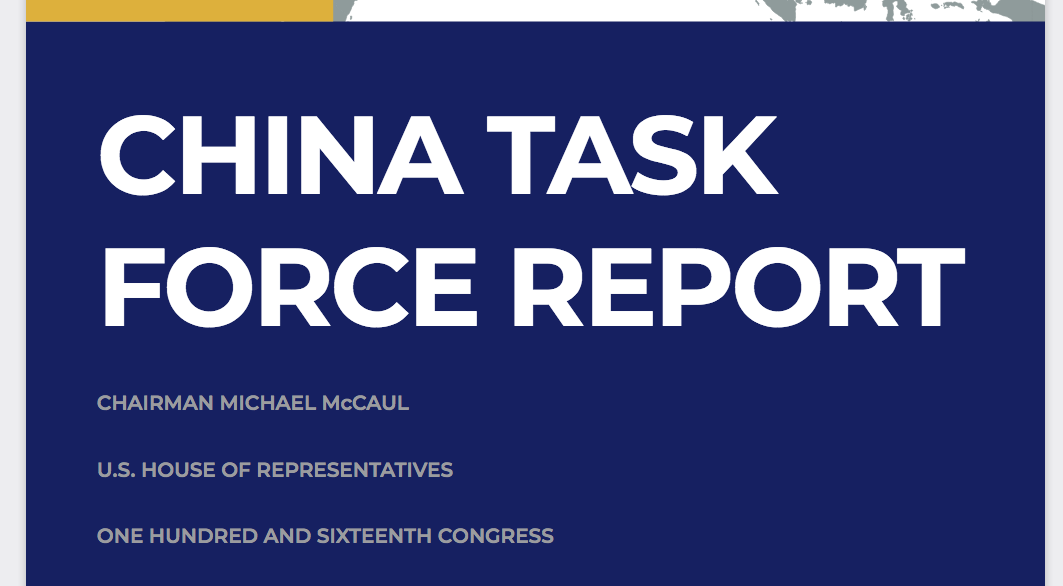Primer:
On September 25, 2015, during CCP General Secretary Xi’s state visit to the United States, President Obama and Xi gave remarks to the press in the White House Rose Garden. The two leaders announced that they had agreed “neither the U.S. or the Chinese government will conduct or knowingly support cyber-enabled theft of intellectual property, including trade secrets or other confidential business information for commercial advantage.” Xi also pledged that “China does not intend to pursue militarization” of the South China Sea. Neither of these promises to the American people were made in good faith. Today, “China is using cyber-enabled theft as part of a global campaign to ‘rob, replicate, and replace’ non-Chinese companies in the global marketplace,” according to Assistant Attorney General John Demers. Meanwhile, the PRC’s military outposts in the South China Sea have been proven “capable of supporting military operations and include advanced weapon systems,” according to the Pentagon.
October 01, 2020 Congressional Record
COUNTERING THREAT OF CHINESE COMMUNIST PARTY The SPEAKER pro tempore. The Chair recognizes the gentleman from Pennsylvania (Mr. Joyce) for 5 minutes. Mr. JOYCE of Pennsylvania. Mr. Speaker, after months of hard work and collaboration, the China Task Force has released our final report, which includes more than 400 solutions to counter the growing threat of the Chinese Communist Party.
This report is the framework for combating the aggressive Chinese Communist regime. After meeting with more than 130 experts, we developed realistic and achievable solutions that take a comprehensive approach to strengthening America’s national security and holding the Chinese Government accountable. We realized that out of our 400 recommendations, 180 are legislative solutions, of which 64 percent are bipartisan and one-third have already passed either the House or the Senate.
Mr. Speaker, these are commonsense solutions that we can vote on today to strengthen our strategic position for tomorrow. As the only physician serving on the China Task Force, it was my privilege to delve into opportunities to strengthen our supply chains and ensure that Americans are never again beholden to the Chinese Government for key medicines or healthcare supplies.
On the Health and Technology Subcommittee, I led efforts to strengthen [[Page H5110]] the supply chains for medicines, semiconductors, and other vital materials. Congress has passed several provisions aimed at advancing research and the manufacturing of critical medical supplies here in the United States. We also created new reporting requirements to help us better understand international supply chains and counter vulnerabilities in the system.
To bolster our technology supply chain, I cosponsored H.R. 7178, the CHIPS Act, to increase domestic production of advanced semiconductors, which will help Americans to develop next-generation telecom technology, fully automated systems, and, importantly, new weapons systems. I also introduced the ORE Act, H.R. 7812, to incentivize the domestic production of rare earth materials, which is key to breaking the Chinese monopoly on critical supply chains. America cannot allow China to win the race to next-generation technology. We want innovative breakthroughs to happen here in this country, and the China Task Force is making progress through the legislative process. As a leader on the competitiveness committee, I focused on issues ranging from combating Chinese Communist-sponsored theft of intellectual property to exposing the influence of the Chinese in U.S. research institutions and countering the importation of illicit fentanyl.
Too often, American companies are being coerced to surrender intellectual property to the Chinese Government in order to gain entry into the Chinese marketplace. In extreme cases, we hear of outright theft by Chinese hackers and agents. The China Task Force has produced recommendations that direct the Federal Government to ramp up investigations of individuals acting as pawns of the Chinese Communist Party and enforce antitheft laws.
Our Nation has also seen wholesale efforts of the Chinese Government to steal research and gain influence at United States universities. In my own backyard, the FBI arrested a former Penn State researcher suspected of espionage. The task force has compiled provisions to increase transparency and accountability in the higher education system, and I introduced legislation to close loopholes and force the disclosure of all foreign money in our research systems. Finally, we must stop illicit fentanyl from reaching our communities and killing our neighbors.
The China Task Force has produced recommendations to stop the importation of these devastating analogues from China. In the House, I cosponsored legislation to hold foreign nations, including China, accountable if they fail to cooperate with U.S. narcotics control efforts and prosecute the production of fentanyl in their countries. I thank Senator Toomey for championing this provision in the Senate.
By implementing these solutions, we can make America safer, stronger, and better equipped to lead in the 21st century. The China Task Force final report is a framework. It is our playbook to make a difference. While our work on this report has finished, our commitment to this cause must and will continue. Phase two starts today.

